
Research Talks: New IFPRI Podcast
-
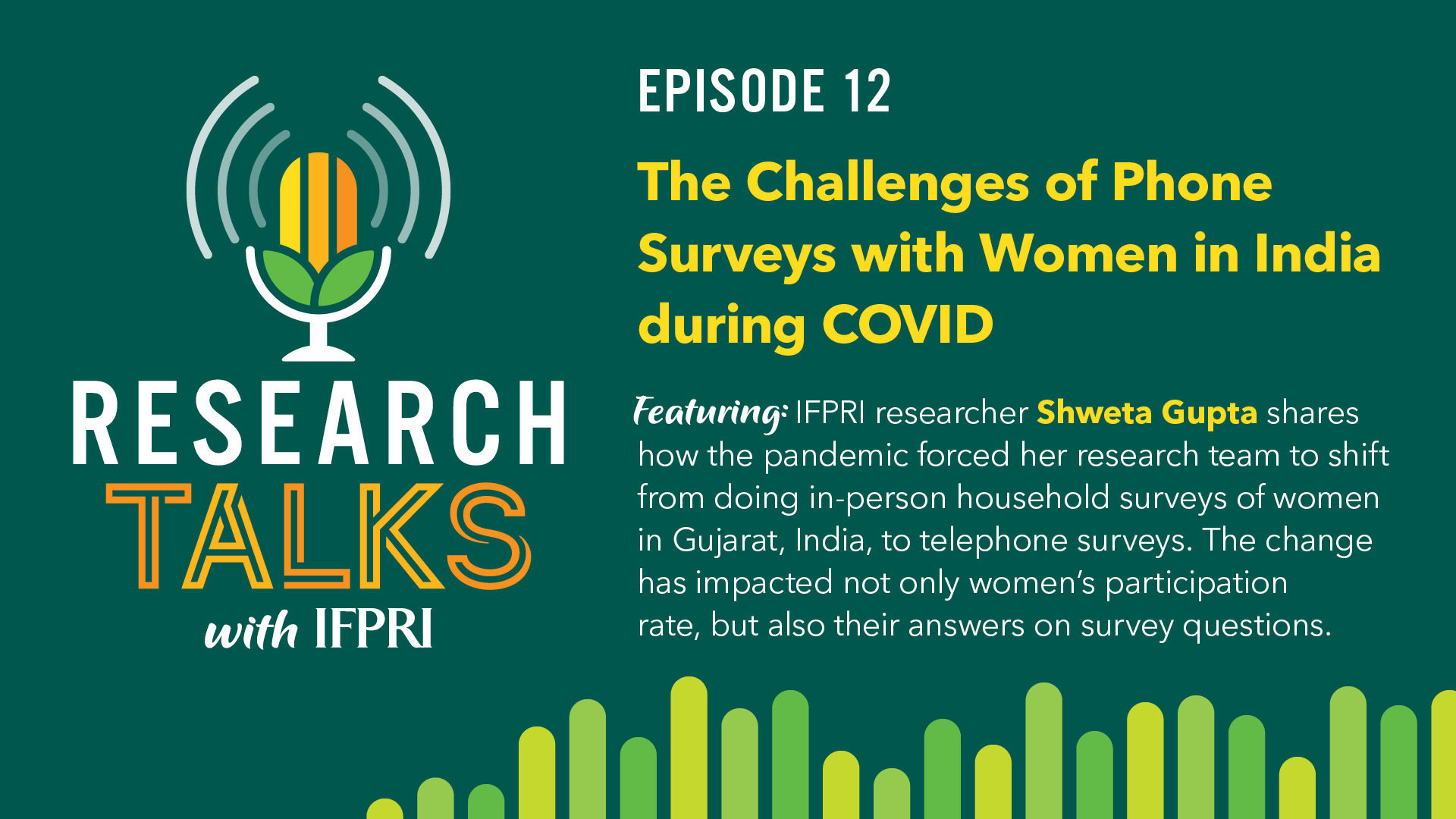
Episode 12: The Challenges of Phone Surveys with Women in India during COVID
Shweta Gupta explains how research on self-employed women’s livelihoods in India became research on whether speakerphone being on or off during phone surveys impacts answers.
-
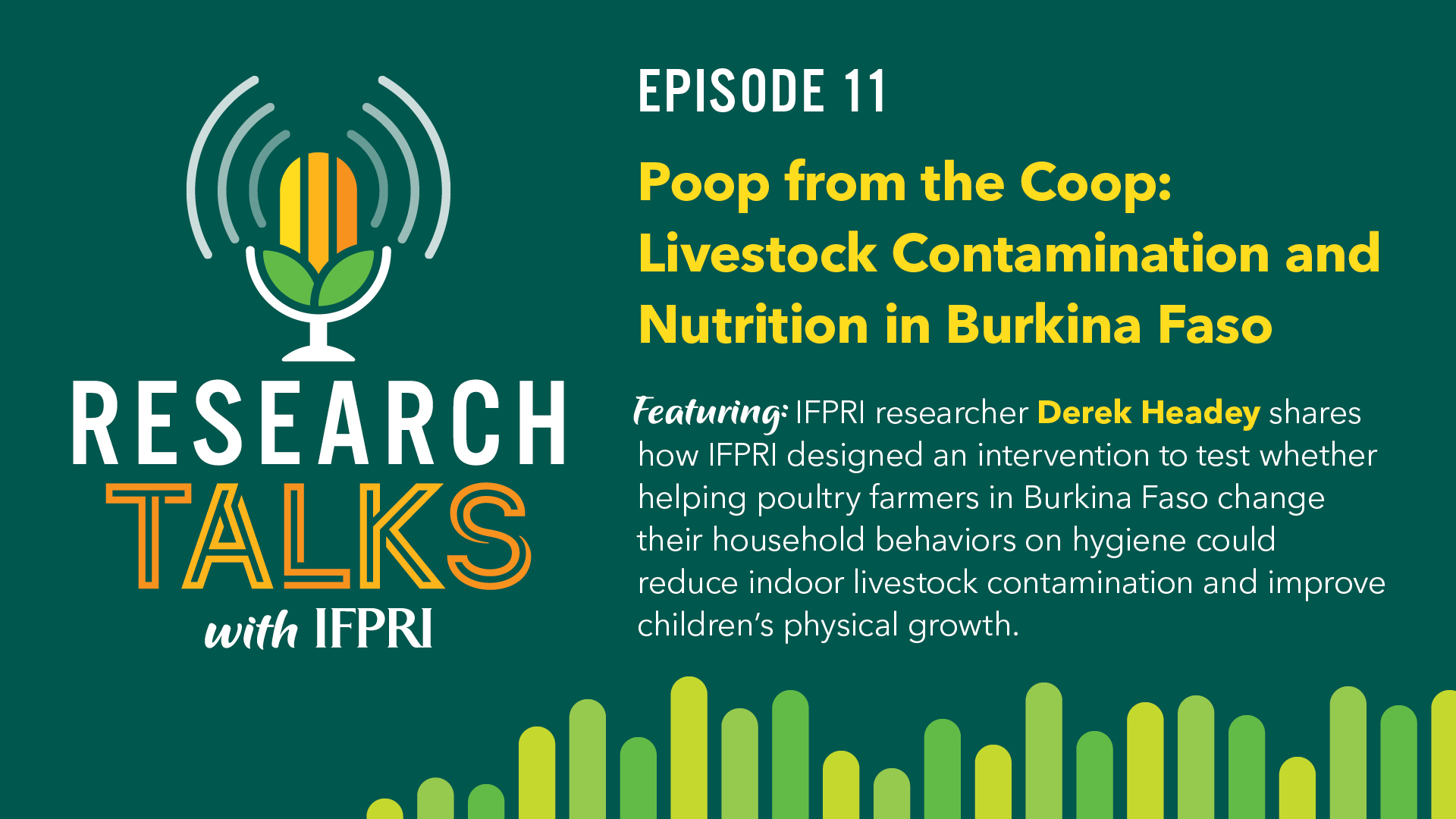
Episode 11: Poop from the Coop – Livestock Contamination and Nutrition in Burkina Faso
Hear the story of how IFPRI researchers decided to probe the link between the presence of livestock feces in the home and childhood stunting in Burkina Faso.Listen
-
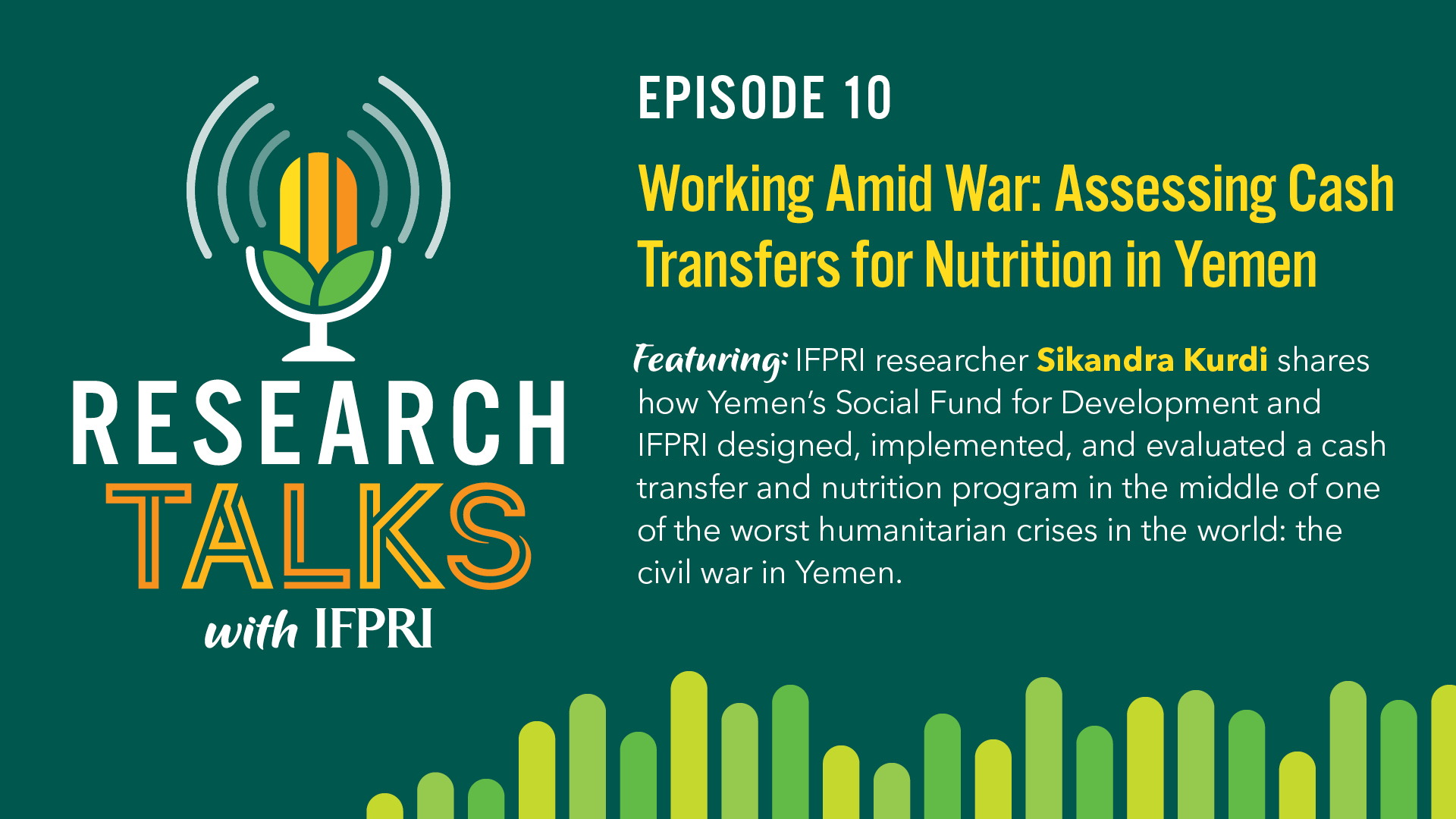
Episode 10: Working Amid War: Assessing Cash Transfers for Nutrition in Yemen
How do you carry out research in the middle of one of the worst humanitarian crises in the world: the civil war in Yemen? This episode features IFPRI Research Fellow Sikandra Kurdi who, in a conversation with Sivan Yosef, tells the story of how Yemen’s Social Fund for Development and IFPRI partnered on the evaluation of a project that…
-
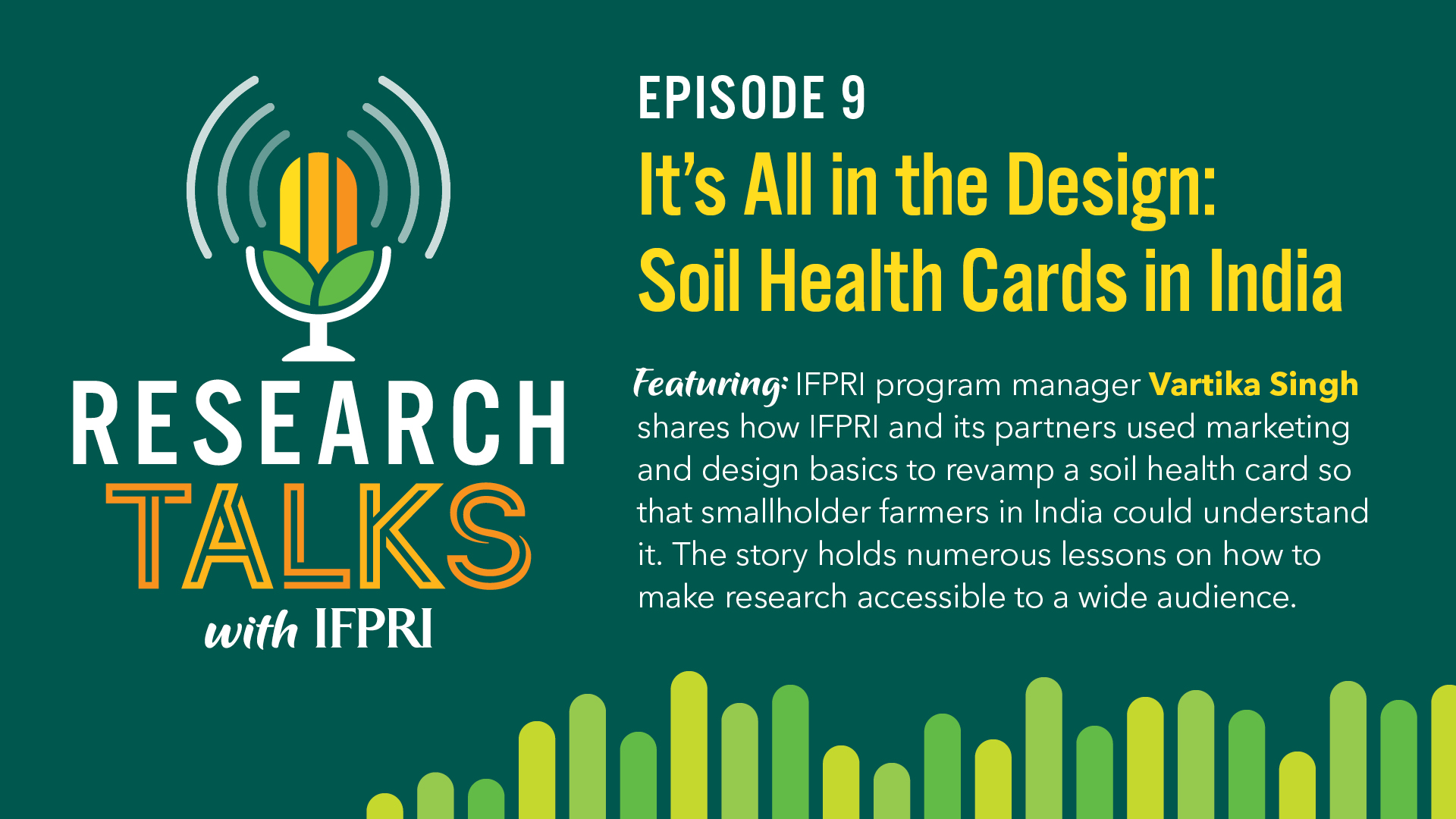
Episode 9: It’s All in the Design: Soil Health Cards in India
What happens when researchers start learning all about marketing? This episode features IFPRI Program Manager Vartika Singh who, in a conversation with Sivan Yosef, tells the story of how IFPRI researchers in India set out to investigate whether government-issued soil health cards were effective in getting smallholders to improve their farming practices. Instead, the researchers discovered…
-
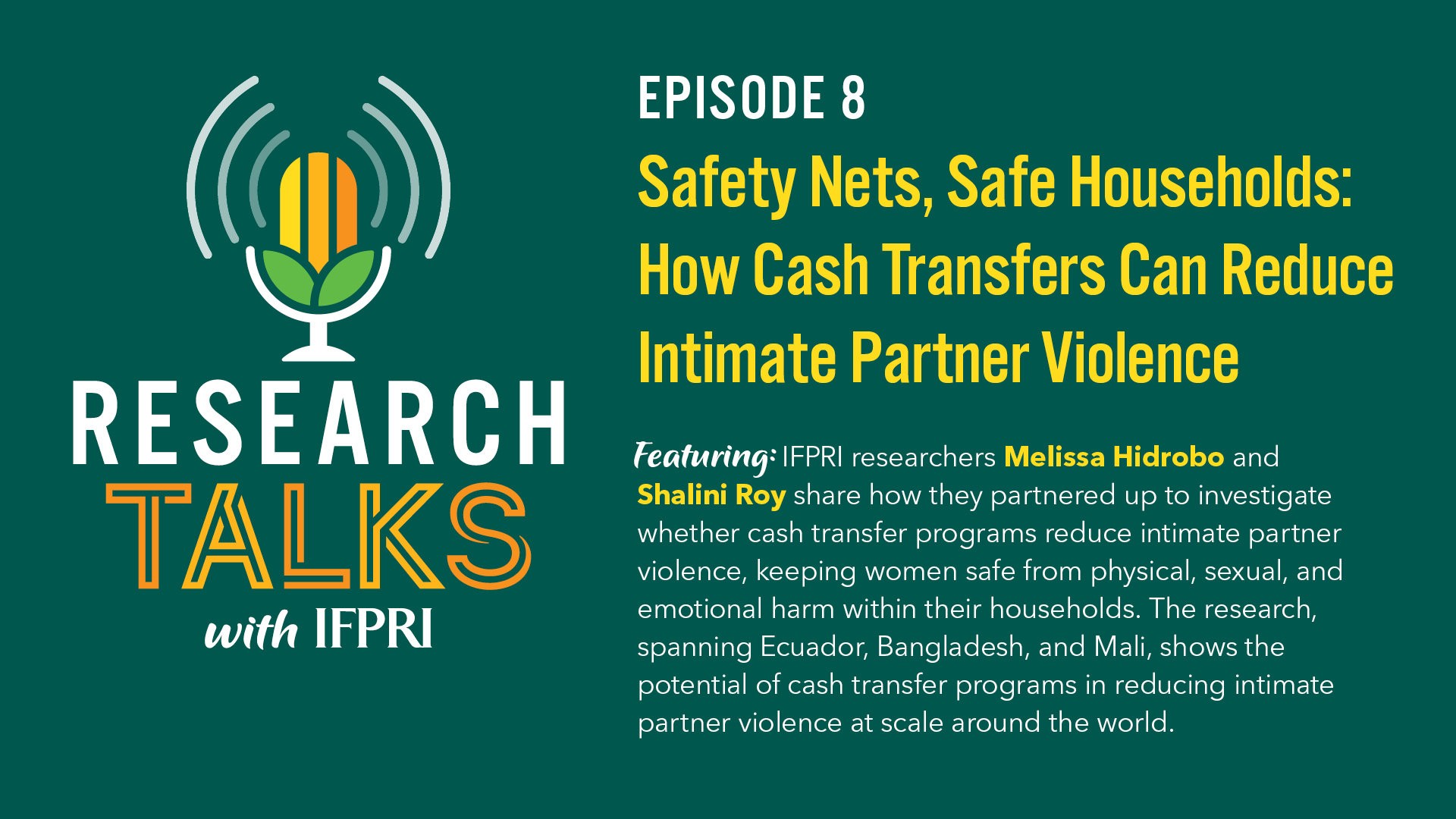
Episode 8: Safety Nets, Safe Households: How Cash Transfers Can Reduce Intimate Partner Violence
Can cash transfers reduce violence within the home, keeping women safe from intimate partner violence? This episode features IFPRI Senior Research Fellow Melissa Hidrobo and Research Fellow Shalini Roy who, in a conversation with Sivan Yosef, tell the story of how development programs can sometimes have surprising impacts. When Melissa found that a cash transfer program…
-
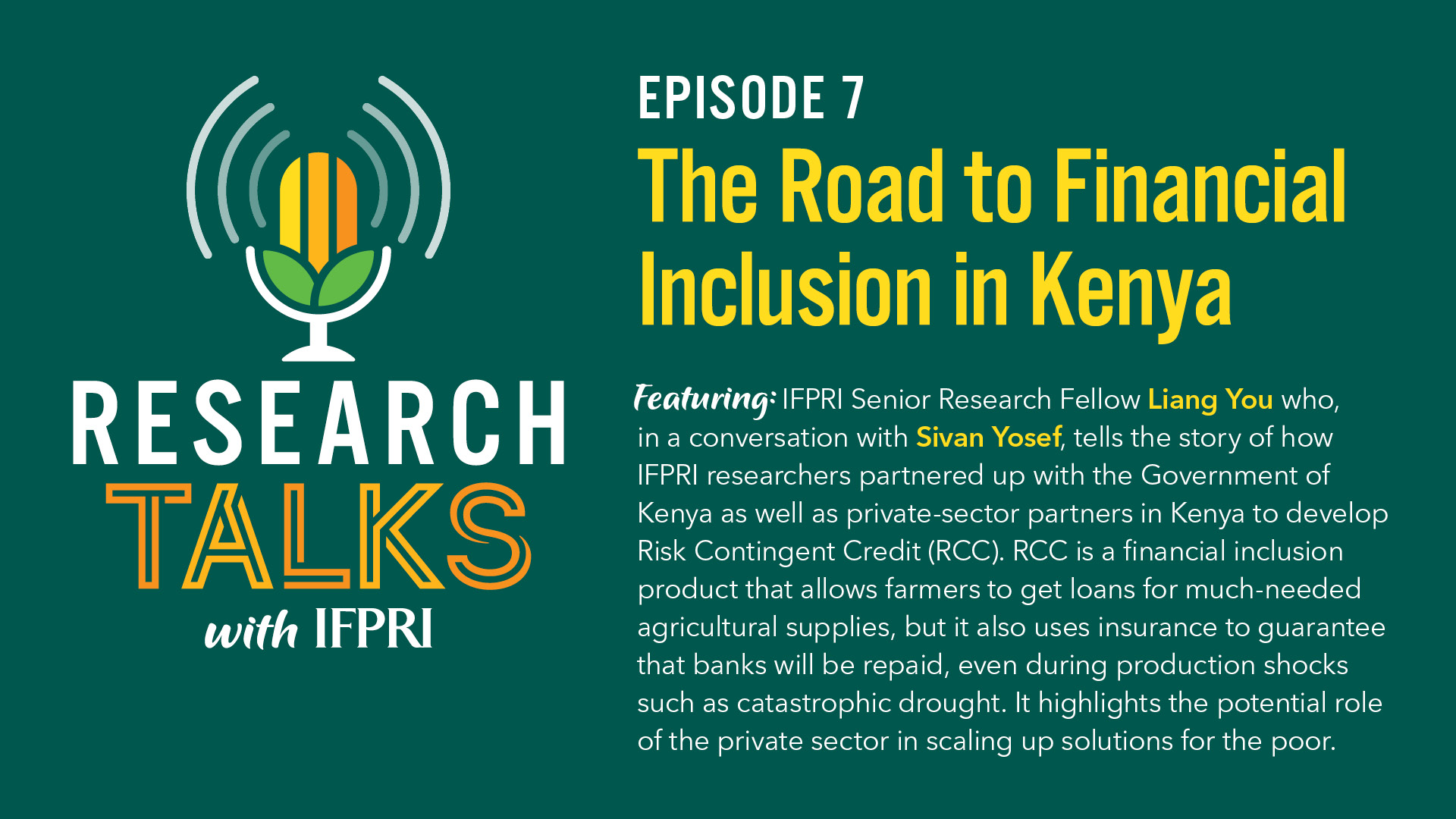
Episode 7: The Road to Financial Inclusion in Kenya
Can researchers help develop a financial tool that lowers risk for both farmers and private banks? This episode features IFPRI Senior Research Fellow Liang You who, in a conversation with Sivan Yosef, tells the story of how IFPRI researchers partnered up with the Government of Kenya as well as private-sector partners in Kenya to develop Risk…
-
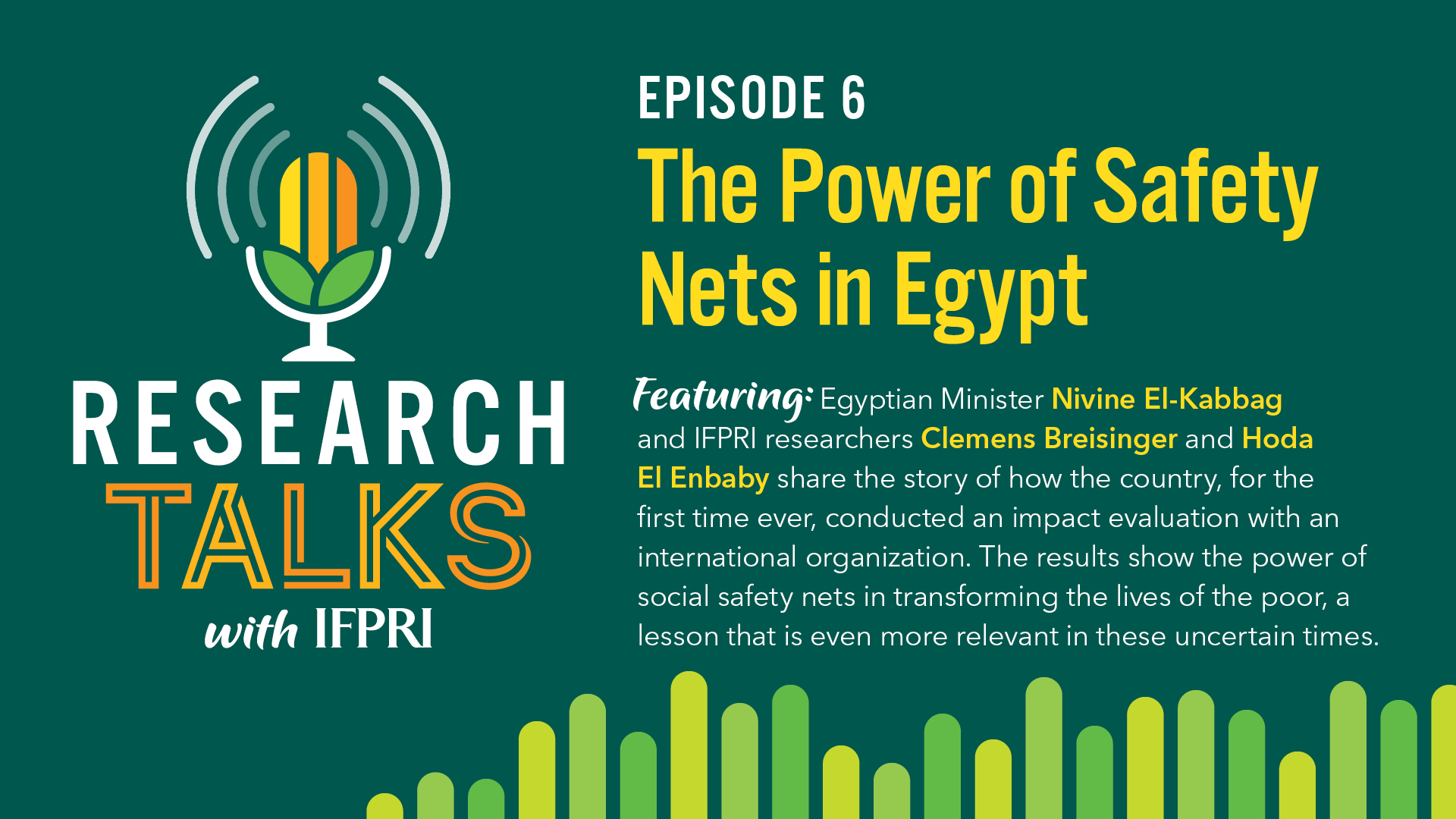
Episode 6: The Power of Safety Nets in Egypt
Can impact evaluation drive changes in the design of social safety net programs? This episode features Egypt’s Minister of Social Solidarity and Social Protection Nivine El-Kabbag along with IFPRI researchers Clemens Breisinger and Hoda El Enbaby. In a conversation with Sivan Yosef and Drew Sample, they share the story of how IFPRI collaborated with the government of Egypt to evaluate the country’s first national conditional cash transfer program, Takaful and Karama. The research…
-
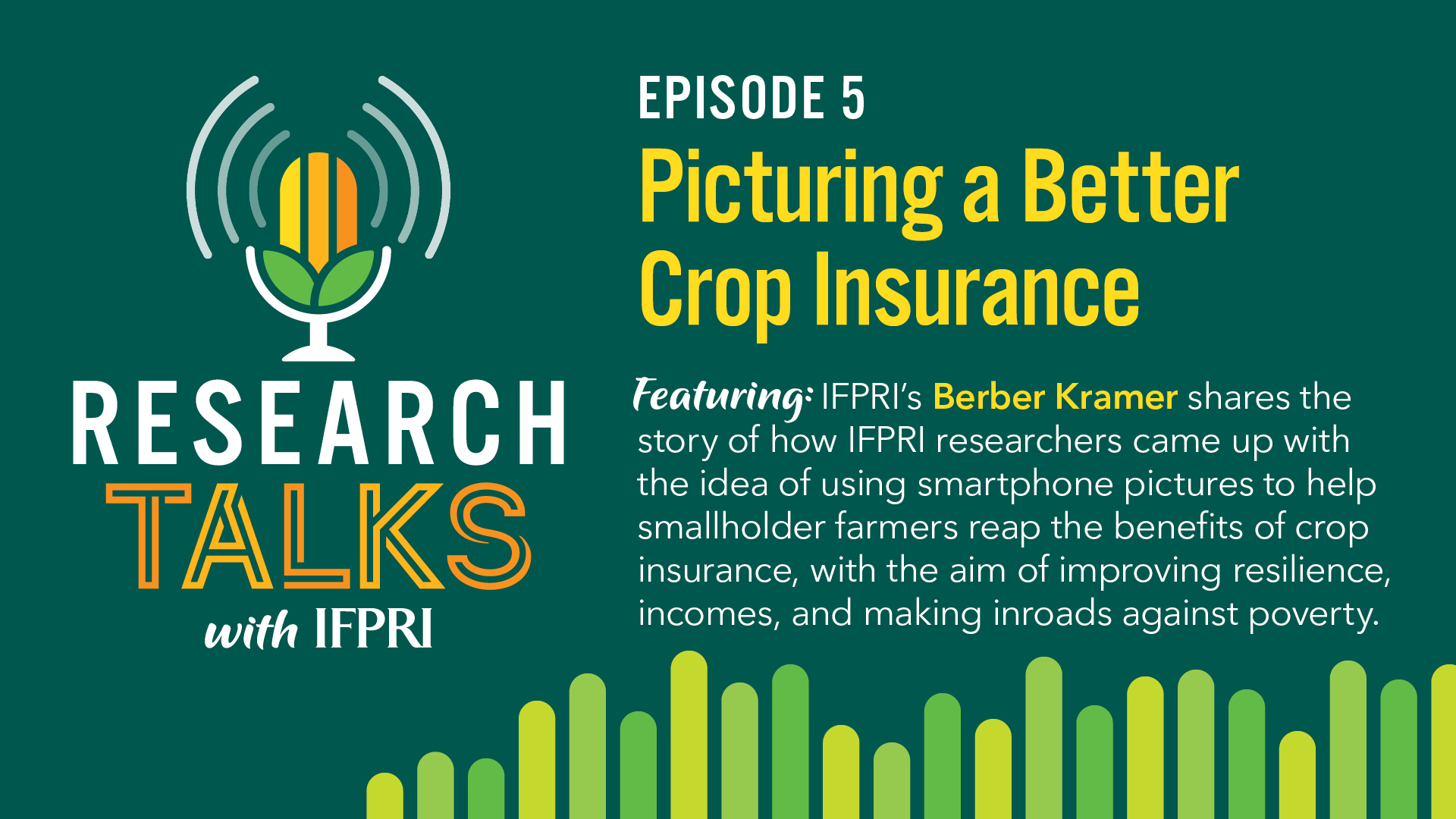
Episode 5: Picturing a Better Crop Insurance
Can a smartphone camera help provide a safety net for smallholder famers?
-

Episode 4: Doing Research in a COVID-19 World
How do you conduct research under a global pandemic? This episode features two interviews illuminating the research process in an era of lockdowns and social distancing.
-
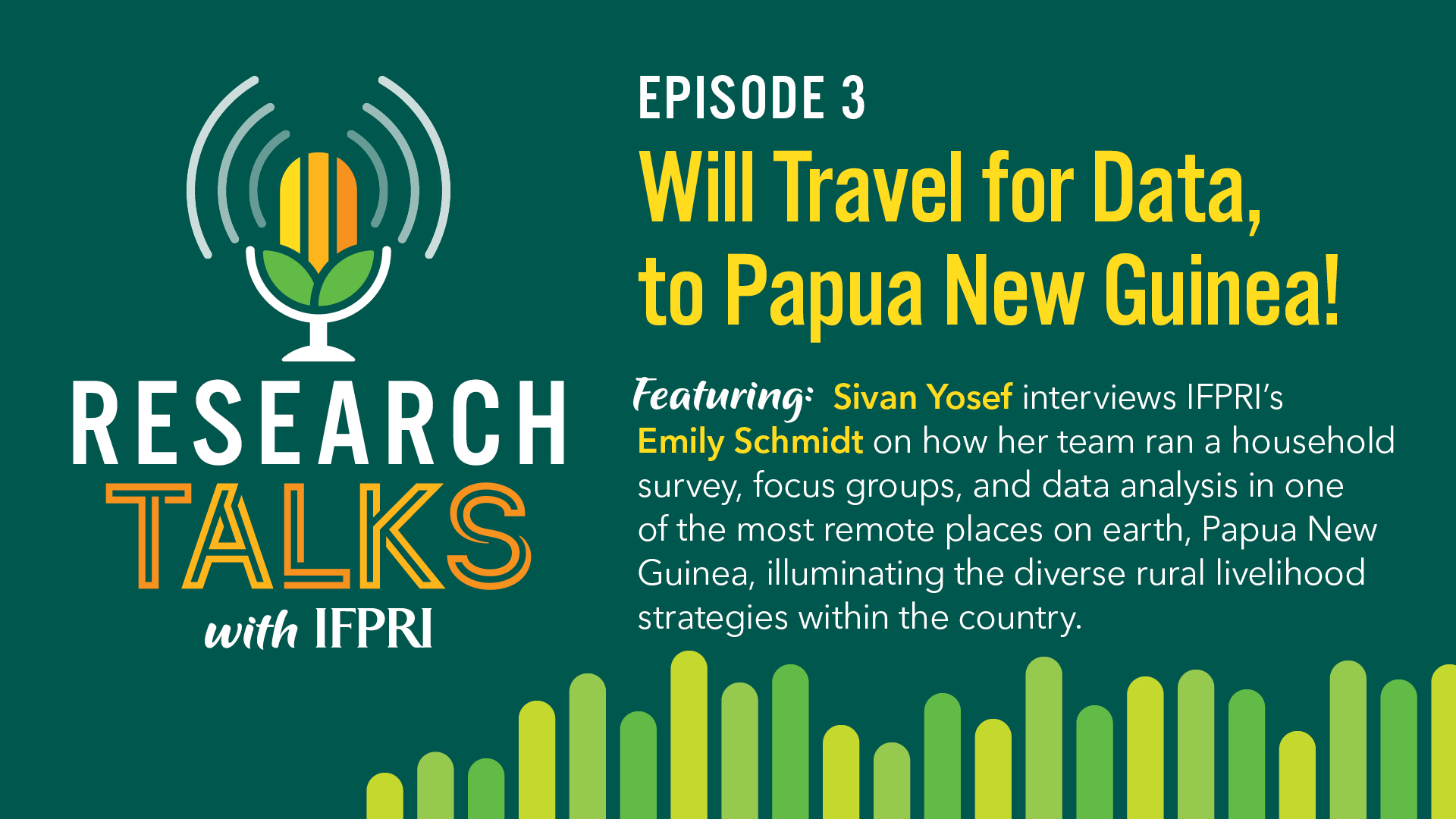
Episode 3: Will Travel For Data, to Papua New Guinea
This episode features IFPRI’s Research Fellow Emily Schmidt, who in a conversation with Sivan Yosef, shares how IFPRI researchers began engaging in Papua New Guinea, traveling through difficult terrain to collect household data and working with partners to build up capacity to do research and evidence-based policy analysis. Their results have illuminated the diverse rural livelihood…
-
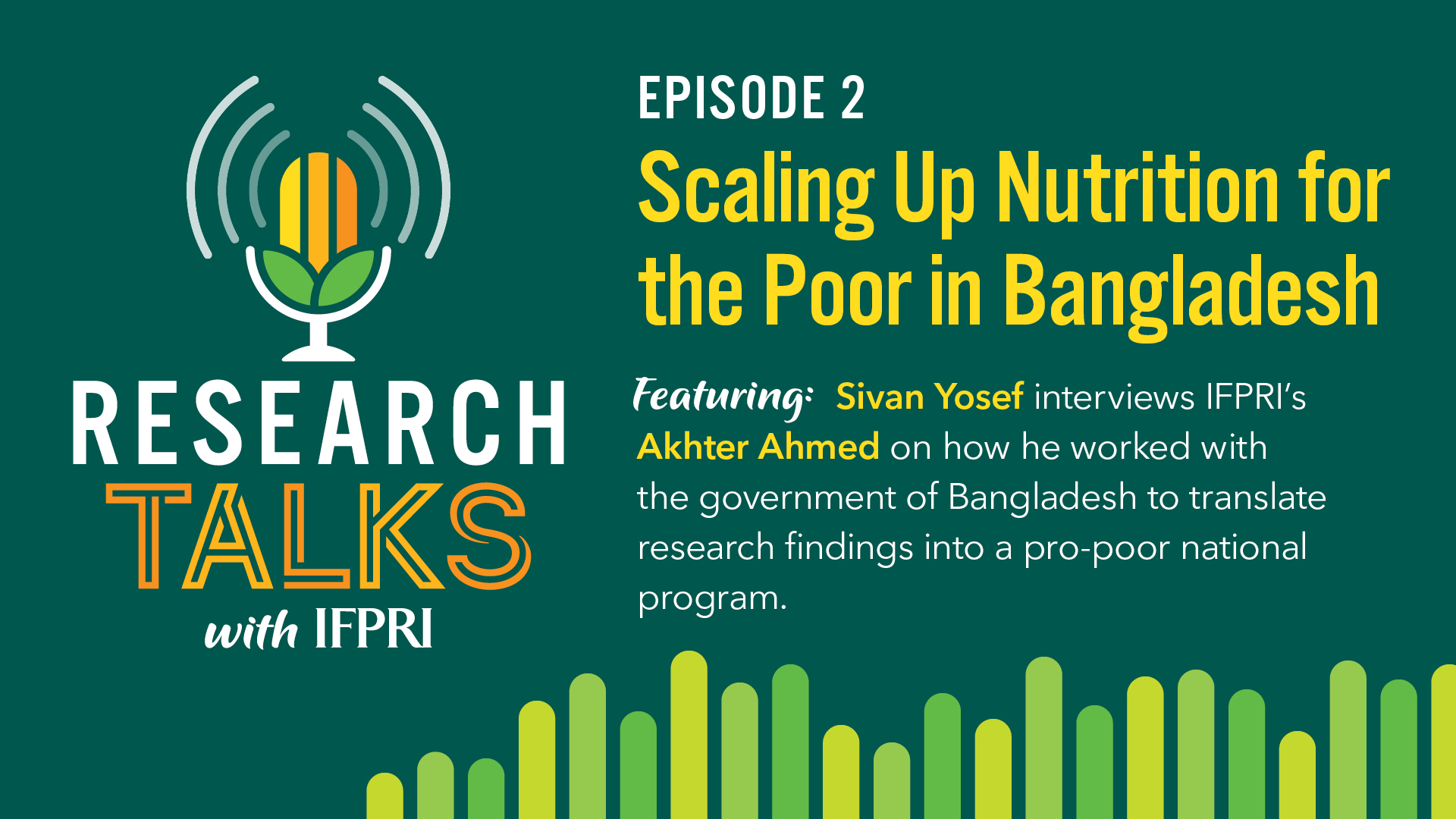
Episode 2: Scaling Up Nutrition for the Poor in Bangladesh
How do you translate research findings into a robust, pro-poor national program? This episode features IFPRI’s Senior Research Fellow and Bangladesh Country Representative Akhter Ahmed, who in a conversation with Sivan Yosef, shares the inspiring story of ANGeL, an intervention that used agriculture, nutrition, and gender trainings to directly help and empower poor people. The government…
-
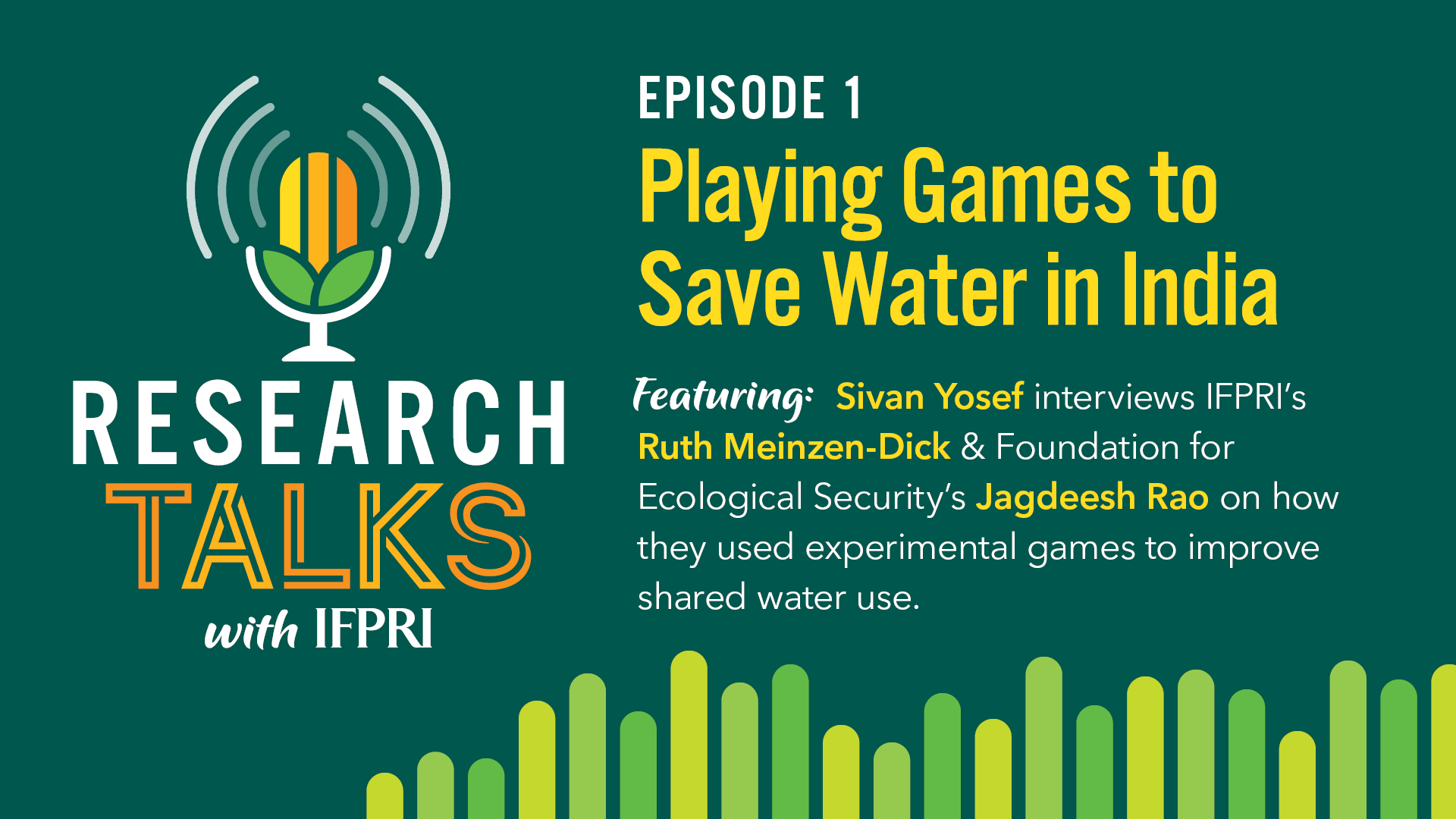
Episode 1: Playing Games to Save Water
How do you get people to cooperate in conserving shared water resources? The first episode features IFPRI’s Senior Research Fellow, Ruth Meinzen-Dick, and Foundation for Ecological Security’s Chief Executive, Jagdeesh Rao, who in a conversation with Sivan Yosef, share their novel approach to forging cooperation between communities to conserve water. In the process, they decided to…



